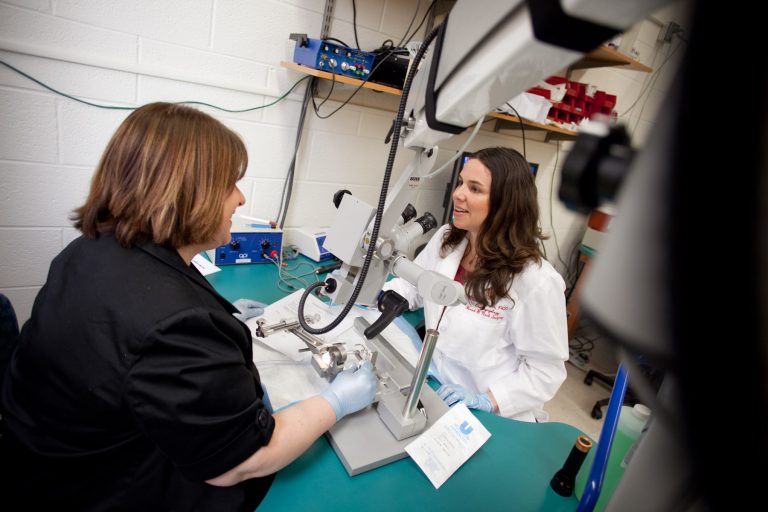This is an accordion element with a series of buttons that open and close related content panels.
Susan Thibeault, PhD, CCC-SLP, Program Director
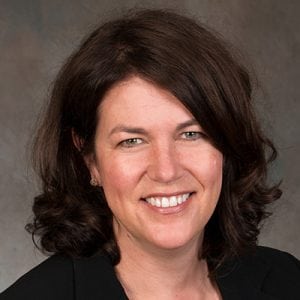
Diane M. Bless Endowed Chair of Otolaryngology – Head and Neck Surgery and the Vice Chair of Research in the Department of Surgery
Dr. Thibeault’s research focuses on the molecular and genetic mechanisms of vocal fold vibration, tissue engineering and regeneration within the lamina propria and work specific to laryngeal microbiology and immunology. Dr. Thibeault’s research program focuses broadly on further understanding the biological mechanisms of the extracellular matrix, specifically related to inflammation, fibrosis and scarring. The primary aim of this work has involved translational and clinical investigations of laryngeal disorders to characterize critical aspects of dysregulated extracellular matrix (ECM) deposition. The overarching theme of Dr. Thibeault’s research program is to further the understanding of the biological mechanisms of vocal fold injury and repair.
Nadine Connor, PhD, CCC-SLP, Program Co-Director
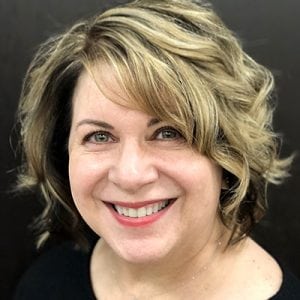
Professor in the Departments of Communication Sciences and Disorders and Surgery
Dr. Connor’s primary research focus is the effect of aging on the upper airway, including the larynx and tongue. Her research program studies muscle physiology and structure, as well as nerve-muscle connections. Current work in the Connor lab includes examination of mechanisms of muscular plasticity within the larynx and tongue and how these processes can be reversed or prevented via exercise. In addition, Dr. Connor has a clinical research program in the field of voice outcomes in head and neck cancer, thyroid cancer, and voice-related quality of life in children.
Jack Jiang, MD, PhD, Program Co-Director
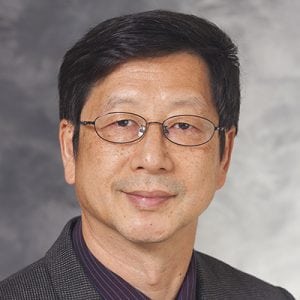
Professor of Surgery in the Division of Otolaryngology – Head and Neck Surgery
Dr. Jiang’s research focuses on the vibratory properties of the vocal folds via studies of human subjects, excised larynges, biomedical modeling, aerodynamics and analysis of laryngeal microstructure. One of his current projects focuses on the chaotic dynamics of healthly and dysphonic vocal fold vibrations and acoustics, and finite element analysis as well as modeling of asymmetry, vocal polyps, and dehydration with excises larynx and human subjects. Dr. Jiang is also developing non-invasive, reliable methods of voice evaluation in patients with laryngeal pathology, including professional voice users and children.
Michelle R. Ciucci, PhD, CCC-SLP
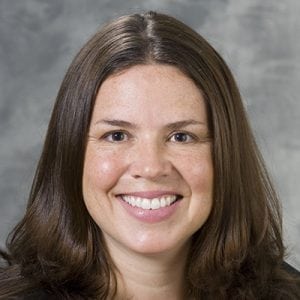
Associate Professor in the Division of Otolaryngology – Head and Neck Surgery and Communication Sciences & Disorders
Dr. Ciucci’s translational research program is focused on understanding central nervous system mechanisms for sensorimotor control of vocalization, speech, and swallowing in health and neurologic disease. She also advances the study and clinical care of swallowing dysfunction with a new tool, high resolution manometry. The overarching goal of this line of work is to improve diagnosis and treatment of swallowing disorders with objectives physiologic measures. As a practicing speech-language pathologist and neuroscientist, Dr. Ciucci can appreciate the clinical implications of the basic science findings with the goal of translating the work to conduct human clinical trials.
David O. Francis, MD
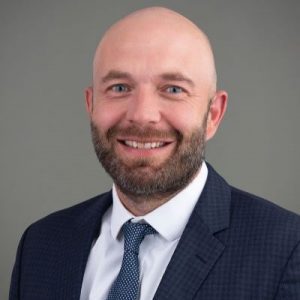
Associate Professor in the Division of Otolaryngology – Head and Neck Surgery and Associate Director of the Wisconsin Surgical Outcomes Research Program (WiSOR)
Dr. Francis’s research interests include patient-centered outcomes research and comparative effectiveness research in voice and breathing disorders. Clinically, he has expertise in all areas of laryngology including professional voice care, vocal fold paralysis, dysphagia, upper airway diseases, and neurolaryngological disorders. His current research portfolio includes funded research in vocal fold paralysis outcomes, post-thyroidectomy voice and swallowing dysfunction, idiopathic subglottic stenosis, psychometrics, and dissemination and implementation science.
Paul M. Harari, MD
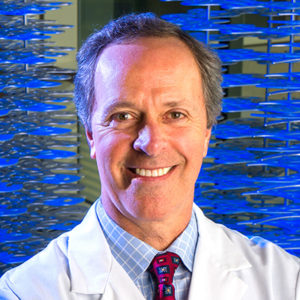
Jack Fowler Professor and Chairman of the Department of Human Oncology and PI of the Head and Neck Cancer Specialized Program of Research Excellence (SPORE)
As Professor and Chairman of the University of Wisconsin Department of Human Oncology, Principal Investigator for the Wisconsin H&N SPORE Grant and member of the UW Carbone Cancer Center Senior Leadership Council, Dr. Harari facilitates the interaction of investigators involved in basic, translational and clinical cancer research activities. The overall theme of Dr. Harari’s research program is to improve treatment outcome for patients with head and neck cancer (HNC). Areas of particular research emphasis include the interaction of molecular growth inhibitors combined with radiation and the use of conformal radiation treatment techniques to limit normal tissue toxicity. Dr. Harari has been an active RTOG/NRG HNC Committee member for 25 years and served as PI or Co-PI for a series of national and international HNC clinical trials that have changed global practice for patients with HNC.
Cynthia Kelm-Nelson, PhD
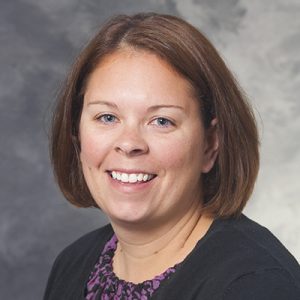
Associate Scientist in the Division of Otolaryngology – Head and Neck Surgery
Dr. Cynthia Kelm-Nelson’s long-term research goal is to understand the mechanisms that modulate vocal behavior in both health and disease. Her NIH-funded work utilizes a true systems biology approach, encompassing behavioral, genomic, and proteomic analyses to model brain-vocal behavior relationships. Her most current NIH-funded research is focused on defining the following gaps in knowledge: (1) the neuroanatomical tracing of the biochemistry of vocalization pathways, (2) the alterations in gene expression within the brain, vocal fold muscle, and blood that result in characteristic gene expression signatures that may constitute early Parkinson disease biomarkers, and (3) the identification and repurposing of FDA approved drugs that have therapeutic effects for vocal communication deficits. The results of this research will ultimately lead to an increased understanding of the onset of behavioral phenotypes, sex differences, neuropathology, and substrates of vocal communication deficits in Parkinson disease, as well as new targeted drug treatment options.
Randall J. Kimple, MD, PhD
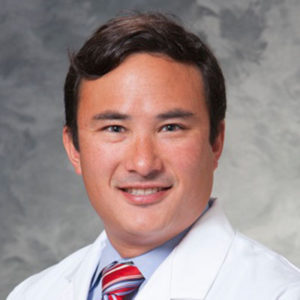
Associate Professor in the Department of Human Oncology
Dr. Kimple’s laboratory research focuses on identifying novel approaches to personalize therapy for head and neck cancer in order to improve patient outcomes and quality of life. The long-term goal of his lab is to improve the lives of head and neck cancer patients through discoveries leading to evidence-based changes in standard-of-care treatment approaches. His clinical practice focuses on the multidisciplinary care of head and neck cancer patients. His lab studies personalized medicine approaches to combine radiation and chemotherapy to improve cancer responses and investigates cell therapy approaches to manage radiation induced toxicity. He regularly teaches medical students, residents, and fellows as well as interacts with trainees and faculty from multiple disciplines.
Timothy McCulloch, MD
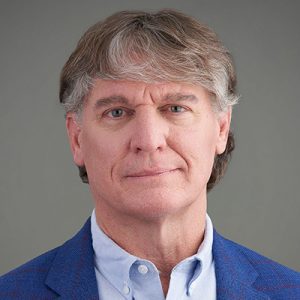
Charles N Ford Endowed Professor and Division Chair of Otolaryngology – Head & Neck Surgery in the Department of Surgery
Dr. McCulloch is a surgical oncologist and laryngologist. His research interests are in the areas of voice disorders, laryngeal function, dysphagia, and head and neck cancer. He is considered one of the world’s experts on laryngeal electromyography, voice restoration and high-resolution manometry. Dr. McCulloch recently completed the work as PI for an NIDCD R33 to develop new clinical capabilities by optimizing high-resolution manometry. Active research includes a multisite Veterans Administration Merit Grant to study the relative value of manometry, fluoroscopy and Clinic data in the prediction of impact of dysphagia therapy and multisite PCORI trail on PROACTIVE therapy to prevent dysphagia after radiation therapy.
William Murphy, PhD
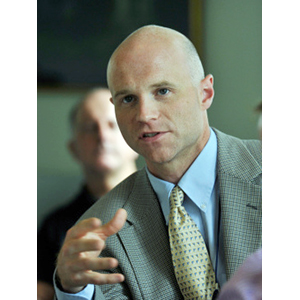
Harvey Spangle Professor of Engineering in the Department of Biomedical Engineering
Dr. Murphy’s research interests include creation of novel materials using bioinspired approaches, using biomaterials to define the stem cell microenvironment, development of biomaterials for tissue regeneration, and novel approaches to drug delivery and gene therapy. Particular emphasis is placed on temporal and spatial control over growth factor activity, gene transfer, and mechanical stimulation. Dr. Murphy’s group is highly interdisciplinary, with research areas ranging from novel materials design approaches to basic stem cell biology.
Sean Palecek, PhD
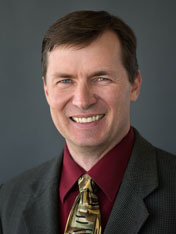
Milton J. and A. Maude Shoemaker Professor of Chemical and Biological Engineering
Dr. Palecek’s research seeks to dissect cellular signaling networks, focusing on mechano-transduction pathways, and characterize how quantitative changes in the flow of signals can control a wide variety of cellular processes. In particular, he studies how cell-cell adhesive interactions affect disease pathogenesis and how adhesive and mechanical signals combine with chemical signals to regulate stem cell fate choices. Specific to voice, Dr. Palecek has been actively involved in the differentiation of embryonic and induced pluripotent stem cell into vocal fold epithelial cells. He has contributed to the work in establishing these cells such that they can be utilized to study vocal fold epithelial cell behavior and for use in a 3D vocal fold mucosal model.
John A. Russell, PhD
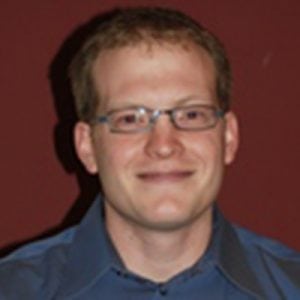
Senior Scientist in the Division of Otolaryngology – Head and Neck Surgery
Dr. Russell’s research expertise is in the areas of muscle physiology and movement science in the cranial sensorimotor system, and the manner in which adaptation within this system can be measured and optimized. In particular, his work examines muscle contractile and blood flow properties in muscles of the tongue and larynx and how these properties change with aging, disease, treatments for disease, and disorders. His current research is focused on pathology in head and neck radiation in a rat model, and how exercise or muscle stimulation modeled after those in current clinical use may modify muscle physiology and function. Dr. Russell has experience has a health science research science and given his extensive basic science background is an excellent resource for trainees as they implement their research methodologies.
Rebecca S. Sippel, MD
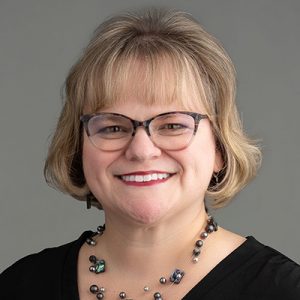
Professor of Surgery and Chief of the Division of Endocrine Surgery
Dr. Sippel’s research focuses on the diagnosis and management of patients with endocrine disorders which includes improving the care and outcomes of patients after surgery. Currently, she is a principal investigator on an NIH-funded randomized controlled study examining the role of lymph node dissection in thyroid cancer. Dr. Sippel is a co-investigator with Dr. Connor looking at surgical outcomes related to voice in neck dissection patients. In addition to her experience as a clinical education director, Dr. Sippel has an extensive record of accomplishment mentoring dozens of medical students and postdoctoral researchers during their research training. She has a busy clinical practice and is internationally recognized leader in the field of endocrine surgery, which helps ensure a productive clinical research program.
Nathan Welham, PhD, CCC-SLP
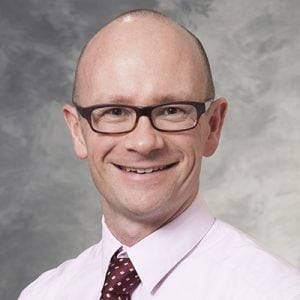
Professor in the Division of Otolaryngology Head and Neck Surgery
Dr. Welham is a practicing speech-language pathologist with clinical specialization in voice disorders and a multiple R01 NIDCD-funded investigator with a research program in vocal fold biology. Dr. Welham’s work is focused on mucosal injury, repair and fibrosis, vitamin A transport and function, emerging biologic therapies, and the application of mass spectrometry-based proteomic technologies. This research involves cross-disciplinary work in chemistry, cell biology, immunology, and the nutritional sciences.
Additional Faculty Instructors
This is an accordion element with a series of buttons that open and close related content panels.
Seth H. Dailey, MD
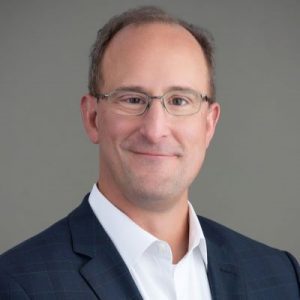
Professor in the Division of Otolaryngology Head and Neck Surgery and Chief of Laryngology and Voice Surgery
Dr. Dailey is currently the Program Director of the Laryngology Fellowship. This fellowship provides a unique learning opportunity to interact with laryngologists, speech pathologists and voice researchers in a clinically active, high volume multidisciplinary setting for the treatment of voice and airway disorders. Dr. Dailey’s research focuses on surgical reconstruction of the vocal fold, vocal fold scarring, laryngeal premalignancy, office-based procedures of the upper airway, and surgical simulation. He specializes in voice, swallowing and airway disorders and has more than 19 years of research experience, training residents and fellows.
Greg K. Hartig, MD
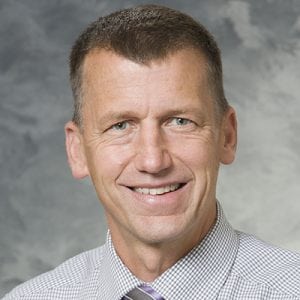
Professor in the Division of Otolaryngology Head and Neck Surgery
Dr. Hartig has extensive experience managing head and neck cancer, including tumors of the skull base, and performing microvascular free tissue transfer reconstruction. Dr. Hartig is the Director of the Head and Neck Oncology Program at the UW Hospital and Clinics. His research interests include evaluating risk factors associated with salivary gland tumors / malignancies as well the development of innovations in free tissue transfer. He is also involved with the UW Head and Neck Cancer SPORE as part of the Therapeutic Combination of CLR1404 with External Beam Radiation project.
Glen Leverson, PhD
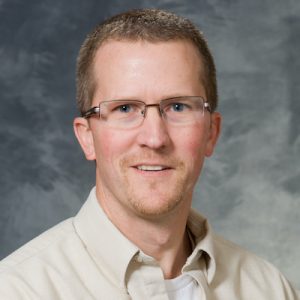
Senior Biostatistician in the Department of Surgery
Dr. Leverson is a distinguished scientist and biostatistician who has been working in the Department of Surgery for 24 years. He has vast experience consulting faculty and researchers in regards to statistical issues, having provided statistical collaboration for many of the trainers and trainees in this program. He has assisted in basic, bench, clinical, translational, and large data set research conducted in the divisions of otolaryngology, cardiothoracic surgery, general surgery, orthopedic surgery, plastic surgery, transplantation, urology and vascular surgery. He helps with study design, data acquisition, data validation, data analysis, interpretation and explanation of results, manuscript preparation, grant support and faculty and staff education.
Nicole M. Rogus-Pulia, PhD, CCC-SLP
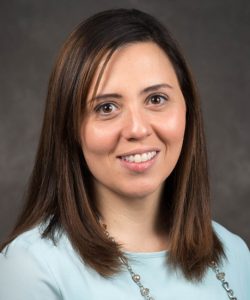
Assistant Professor in the Division of Geriatrics and in the Department of Medicine
Dr. Rogus-Pulia’s research focused on characterization of key factors underlying dysphagia in older adults and persons with Alzheimer’s disease as well as outcomes-based studies to assess efficacy of innovative approaches in dysphagia. More recently, she has begun an investigation of characterization of the oral microbiome in persons undergoing oncologic treatment for head and neck cancer.
David Schneider, MD, MS
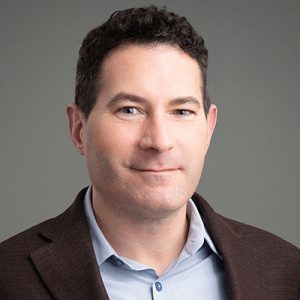
Assistant Professor in the Division of Endocrine Surgery and Physician Informatics Director for Virtual Care at UW Health
Dr. Schneider conducts outcomes research in conjunction with the Wisconsin Surgical Outcomes Research Program (WiSOR). His research program investigates the optimization of Endocrine Surgical care in the United States with a particular interest in the use of informatics tools to improve decision-making. His work utilizes natural language processing and machine learning approaches as well as the analysis of data from electronic health record(s). Current projects evaluate the utilization of telehealth within the health system. He also conducts clinical research working on hyperparathyroidism, thyroid cancer, Graves’ Disease, and adrenal disorders.
